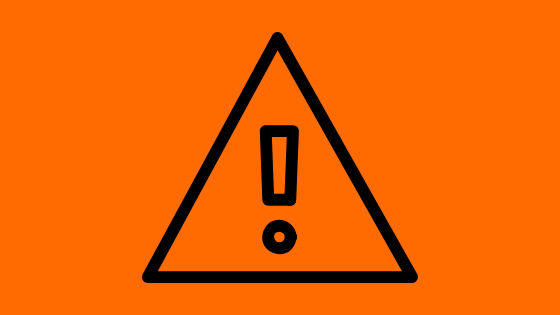SUSTAINABILITY
Have you thought about these external threats to your small business?

What a cheerful, positive subject! External threats to your small business. I'm an optimist and that often means I prefer not to think about worse case scenarios, threats and failure. However, as many of the speakers at the Hub this month will confirm, planning for when things going wrong is very sensible. It builds resilience into your business and the ability to respond quickly to external threats if they do come up - and in the process lessening their impact.
This week at the Hub we had a talk by financial advisor Mark Beresford on planning for disaster, what happens if something happens to you such as illness or even…death. These scenarios aren't really external threats, more internal because they affect your ability to run your business. So if you're taking Mark's advice to protect your business from the inside, are you also protecting it from external threats?
While external threats might appear to be unknowns, they can be planned for. To do this you need to identify potential threats and plan for those that would have the most impact on your business.
Common external threats to small businesses
Competition: could someone spot an opportunity in your market and want your customers? To prepare for this possibility it's important to know who your competitors are, and also who might be potential competitor in the future. For example, at SiGNAL we offer business training through the Hub. Currently there are no other businesses in Whitehill & Bordon who do exactly what we do, although BASE does offer some business support. Potentially they could introduce a similar service so it's important that we build a strong brand, great reputation and establish our position in the local business training market to militate against this potential threat.
Economy: economic conditions will always dictate how successful your business is, however hard you work. Examining economic trends, such as household spending or consumer demand reports, can help you monitor the ups and downs, and take action if needed. It's worth considering how your business would ride an economic crisis like 2008 and explore what measures you could take to ensure you survive.
Politics: we've all seen with Brexit how the political climate can impact the economy and businesses. I know of several companies that have struggled since the EU referendum because of uncertainty, which has led their clients to hold off investing in their services. Decisions made by the government can affect your business in other ways as well. For example, a conflict or disagreement with another country could impact trade deals and imports & exports in that region.
Environment: climate change could be a serious threat to many small businesses. We recently wrote a blog about this which explores key areas that you might need to consider such as supply chain, regulations, customer demand etc. Read the blog here.
Social risks: these can include factors like human rights violations, public health and other issues that may seem a world away from your small business. But social risks can also be as a result of social change for example when society as a whole (or your customer base) deems that something is no longer acceptable. That could be buying a product that's endorsed by a celebrity who has done something wrong, or buying a single-use plastic product when more sustainable alternatives are available.
Technology: one of the main reasons given for Thomas Cook's collapse is that the company wasn't able to adapt to new technologies that changed the travel market. While many small businesses are thriving because of digital technology, there may be a risk that new technologies will make your business redundant or uncompetitive. Fortunately, most small businesses are highly agile and therefore able to quickly embrace new technologies and change or modify their operations.
Demographics: Whitehill & Bordon is a prime example of how changes to demographics in a town or region can adversely affect businesses. Since the Second World War the Bordon and Longmoor Military Camps have changed dramatically, with battalions and bases moving to different sites. With the Whitehill & Bordon regeneration, the fortunes of the town are now on the up and a new demographic of people are moving into the area.
What to do with this information
Consider the impact that the external threats listed above might have on your business. Then prioritise them according to the most likely threats and the ones that would have the most detrimental impact on you. Treat this as a disaster planning exercise where you explore your vulnerabilities and identify steps to first minimise the impact on your business (these are things you can do now) and, secondly, recover as quickly as possible (these are the things you should do if the threat materialises).
Our mission at SiGNAL is to help small business owners and entrepreneurs in Whitehill & Bordon build sustainable businesses. Understanding how external threats might impact your business is an important part of creating a sustainable business.







